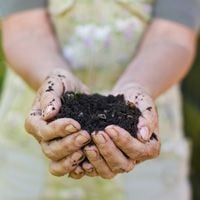 It’s no secret that people need to make less garbage, and that composting has become big business. While any home composting method will decrease the load on local waste management, there are some very good reasons to compost with Red Wiggler composting worms.
It’s no secret that people need to make less garbage, and that composting has become big business. While any home composting method will decrease the load on local waste management, there are some very good reasons to compost with Red Wiggler composting worms.
Even if you do not need the worms for purposes such as pet food or fishing bait, the products your worms put out are valuable for anyone growing any type of plants. There are three great gardening aids you can get from your home worm bin: Vermicompost, Worm Castings and Worm Tea.
Vermicompost. The first worm product is vermicompost. Vermicompost is the crumbly contents of your worm bin after the worms have had some time to process some of the food and bedding. It contains a mixture of worm castings and bacterially composted waste. While it may contain some recognizable bits of food waste, especially things like eggshells, vermicompost mostly looks like crumbly dirt. Vermicompost can be used directly on plants with no fear of burning.
Castings. If your worms have had longer to process their food, then it is likely that most of the material in your bin may have had time to pass through the body of the worms. It is only after it has passed through an earthworm body that compost is called worm “castings.” Although they may clump together, earthworm castings generally have less variation in texture than vermicompost. If you have a multi-layer worm bin, such as the Worm Factory 360, castings will accumulate in the bottom trays if you feed your worms in the top tray. Both vermicompost and worm castings are high in nutrients, but worm castings may also be high in salts, so you should dilute them before using them on plants. Try using 25% castings and the rest other ingredients—a little goes a long way.
Worm Tea for Lawns and Gardens. Worm tea is made from castings or vermicompost and can be used as a spray or drench for your plants. Do you have a larger area to fertilize, such as a lawn? Worm tea is the way to get the most mileage from your vermicomposting. Learn how to make worm tea.
Using Vermicompost and Castings Directly
All three worm products improve soil texture and fertility. They do this both by adding nutrients directly to the soil and by increasing the biological activity in the soil. And in the case of vermicompost and castings, valuable humus (organic matter) is also added to the soil. Humus is the great moderator—it helps clay soils drain better and helps sandy soils retain water better.
You can use castings and vermicompost directly as a topdressing or as a mulch on house plants or trees. Spread an inch or two over the soil around your favorite plants. Just make sure that if you use castings you keep the surface moist enough to keep a crust from forming. You can also broadcast vermicompost or castings over your lawn. Both hand broadcasting and mechanical application will work.
Supercharge Your Potting Soil With Vermicompost or Castings
One great way to use vermicompost and castings is to add it to your potting mix. Worm compost is potent stuff, so you’ll only need to add 10-30% by volume to your mix. The rest can be commercial potting mix or a DIY recipe such as:
- 1 part coir peat or peat moss
- 1 part vermiculite or perlite
- 2 parts compost or leaf mold
Storing Vermicompost for Later Use
If you can’t use all the vermicompost as soon as you harvest it, you can save it. First, you’ll need to make sure the vermicompost is moist, but not so wet that it compacts. The rest is easy—just store it in a way that preserves moisture but allows air flow—perhaps in a burlap sack, or a 5 gallon bucket with holes in the lid. Stored this way, the aerobic microbial action will slowly continue, keeping your compost fresh and usable for up to three years.
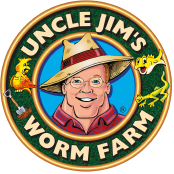

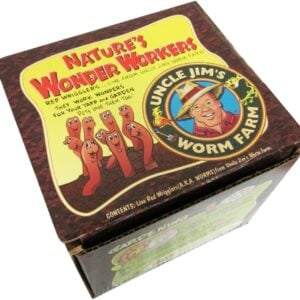
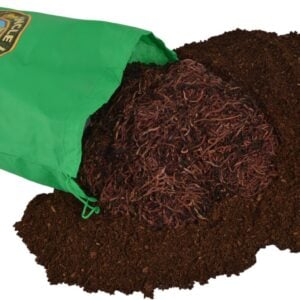
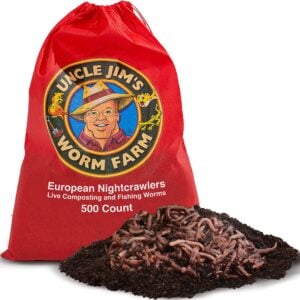

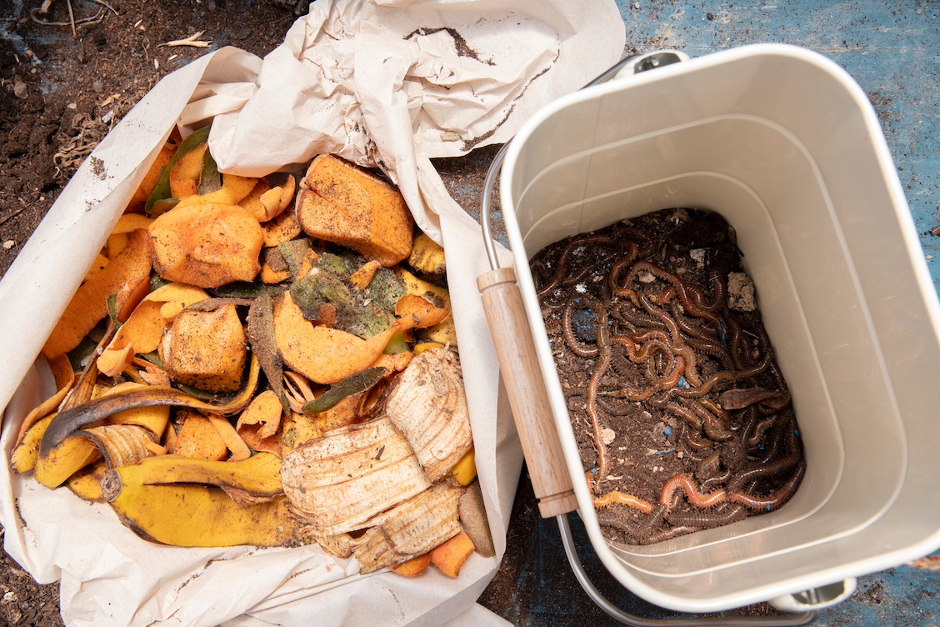
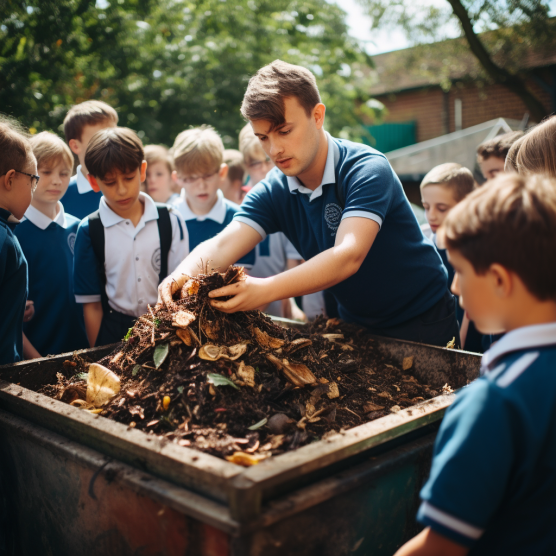
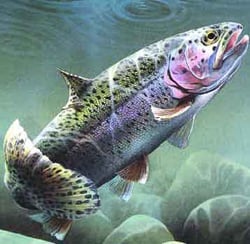
2 thoughts on “Lawn and Garden Fertilization with Worm Compost”
I’ve used Uncle Jim’s Worm Castings in my garden for years. It is especially wonderful for veggies and cannibis gardens. No smell like fish emulsion and the cats in the neighborhood hate it so they keep out of my yard. My palm trees and tropical plants love it as well.
Ho effective is vermicompost on lawn and pastures